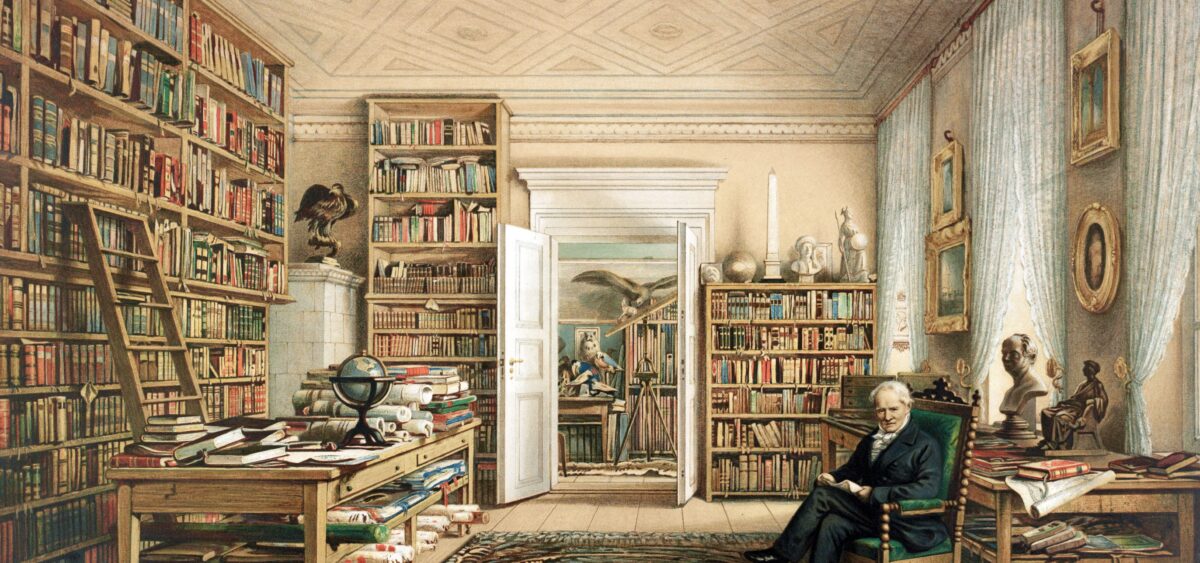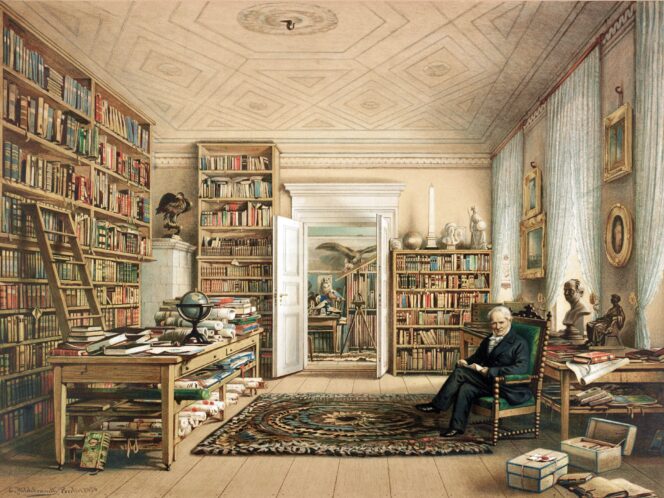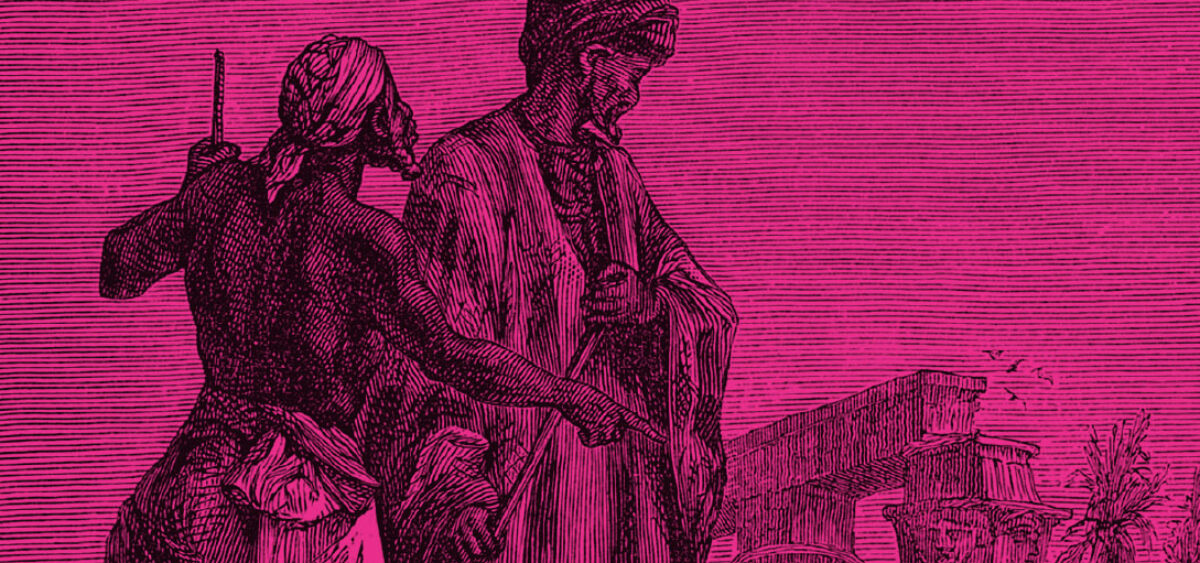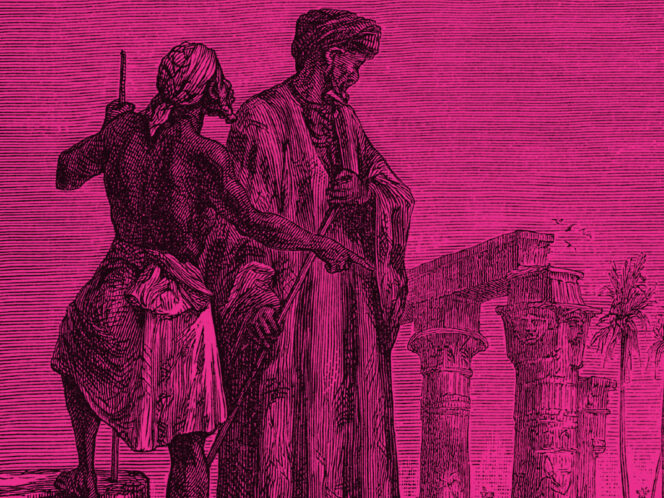
He subjected himself to electric shocks and noted down his experiences. He distinguished between rivers by their flavour. He researched nature with passion, seeing in it a singular powerful force. An uncaring son, a scientist of the Romantic period, whose fame was envied by Napoleon.
Pink flamingos wade in shallow water, yellow and blue crayfish scuttle along the seabed, bizarre red flowers bloom in palm trees, while fish and birds have so many colours that they resemble a rainbow. Nature constantly stimulates our senses, as even at night a meteor shower leaves thousands of white trails in the sky. It is hard to be a stoic surrounded by such scenery. 29-year-old Alexander von Humboldt runs around dazed by the colours. Even his usually calm friend Aimé Bonpland declares that he will lose his mind if these miracles do not end.
Humboldt is finally in his element. He has dreamed about the heat and tropics for a long time. Afflictions of the nervous system and fevers, which he had suffered from in Europe, are easing. He is feeling happier here than ever before. Even an earthquake doesn’t stop him from continuing his observations. He takes electricity measurements, measures the magnitude of the seismic waves, and wonders why they move from the north to the south. Humboldt and Bonpland find so many natural specimens that they are not able to carry them home. They quickly fill their trunks with them. They fast run out of reams of paper, which they use to dry the plants.
On a continent full of wonder, Alexander notes many analogies to the world that he knew earlier in Europe. The trees remind him of Italian pine trees. From the distance, a field of cacti resembles grasses on the swamps of Northern Europe. The caves are the same as in the German Franconia. And a valley is a copy of the English Derbyshire. From his first days in South America, Humboldt has the feeling of “one great whole”.
“Everything seemed somehow interconnected, and this concept was to shape his outlook on the natural world for the rest of his life,” writes Andrea Wulf in Humboldt’s biography The The Invention of Nature.
The dreamer
He is born on 14th September 1769, one month after Napoleon Bonaparte, to a wealthy aristocratic family. Alexander’s father is a chamberlain on the Prussian court, his godfather becomes the future King Frederick William II. Alexander struggles at school, but is interested in nature; he collects shells and plants. Ever since he saw palm trees in the Berlin botanical garden, he has been thinking about touching them in their natural environment. He reads the diaries of James Cook and dreams about travelling. Yet his life is ruled by his mother. She sends her 18-year-old son to Frankfurt (Oder) to study administration. Humboldt cannot stand these studies, as well as his subsequent studies in economics in Hamburg.








